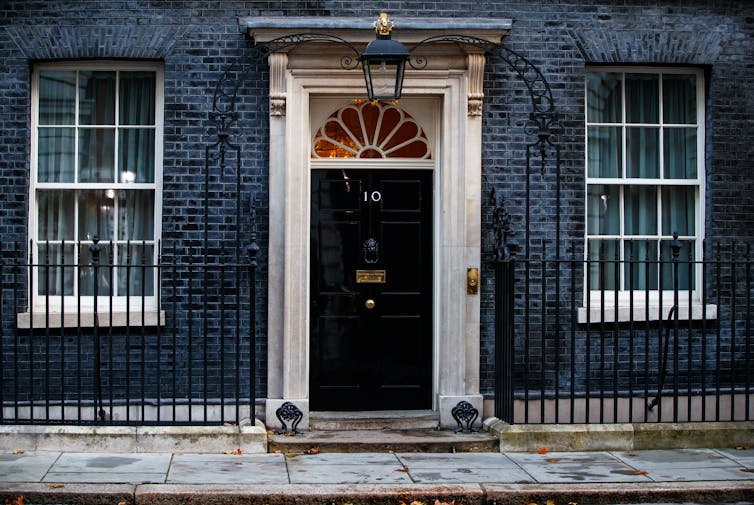BU Lecturers in Law Jamie Fletcher and Karolina Szopa write for The Conversation about the legal status of abortion in the UK, following the overturning of Roe v Wade in the US…
UK abortion laws are more precarious than they seem – replacing the Human Rights Act could unsettle them further

Jamie Fletcher, Bournemouth University and Karolina Szopa, Bournemouth University
The state of abortion laws in the US has many in the UK wondering about reproductive rights in their own country. While abortion is largely accessible in the UK, its legal status is more precarious than many understand. Whichever government is in power next, it has the ability to either solidify abortion access or put it further into jeopardy. With this in mind, the next prime minister should reconsider plans to replace the Human Rights Act 1998 with the proposed bill of rights.
In June 2022, Justice Secretary Dominic Raab introduced the bill of rights bill, which, if passed, will repeal and replace the Human Rights Act. When asked about inserting a right to abortion in the bill of rights, Raab said this wasn’t necessary, claiming that abortion is “settled in UK law”. Without the Human Rights Act, however, abortion in the UK is far from settled.
This is because no law created by parliament is ever truly settled. This is a principle of the British constitution known as parliamentary sovereignty. Parliament is free to pass laws on any issue without being limited by an existing law created by a previous parliament, or any court. This differs from the US, where courts can strike down laws if they conflict with the constitution.
Applied to abortion, this means parliament can legislate any new abortion laws it desires. No court of law or authority could prevent parliament from arriving at a new legal position that would restrict or prohibit abortion access.
The legal status of abortion access in the UK, through the Abortion Act 1967, is more precarious than common understanding. Having an abortion is still a criminal act. A 19th-century law, which remains in place, states that any woman who intends to cause her own miscarriage commits a criminal offence that can result in life imprisonment.
The Abortion Act merely creates a limited exception when two doctors agree that the abortion is necessary and approve the procedure within 24 weeks of conception. At least two women in England and Wales are currently being prosecuted for illegally procuring abortions.
Separate legislation, passed in 2019, removes criminality for abortion in Northern Ireland. Still, due to the principle of parliamentary sovereignty, this legislation lacks any degree of permanency. The right to access abortion in Northern Ireland remains as fragile as in the rest of the UK.
The law granting a right to abortion access in Northern Ireland is re-voted on every year in the House of Commons. Votes in 2020, 2021 and 2022 show that around 25% of MPs are consistently opposed to abortion rights. If political winds change in the future, this percentage might increase and bring forward the true extent of this fragility.
Abortion and the Human Rights Act
Raab’s claim that abortion law is settled might have been based on European human rights law, which applies in the UK through the Human Rights Act. However, this would be incorrect – European human rights law, so far, has offered only minimal protection to abortion access. The right to private and family life enshrined in Article 8 of the European Convention on Human Rights (ECHR) protects personal autonomy and bodily integrity.
Because the issue of abortion raises difficult moral questions over when life begins, the European Court of Human Rights has left it to each country to determine its own laws on abortion. This approach has been applied to other issues including same-sex marriage. Baroness Hale, during her time on the supreme court, remarked that the European court has given countries an “unusual” amount of leeway to determine their abortion laws.
The European court has made it clear that where a pregnancy would directly endanger a pregnant person’s life, their safety must take priority over the life of the foetus. Nonetheless, the court has yet to intervene in countries with restrictive abortion laws, such as Malta, Liechtenstein or Poland.
Domestic law and the power of the courts
Domestic human rights law, on the other hand, offers some support to Raab’s claim of abortion being settled. In a 2018 ruling, the UK supreme court held that domestic laws restricting access to abortions in cases of rape, incest or fatal foetal abnormality would be interpreted as being incompatible with the ECHR right to private and family life.
This interpretation of the right to privacy effectively limited Parliament’s ability to pass more restrictive abortion laws. But it was only possible due to the Human Rights Act, which grants UK judges interpretive powers when it comes to human rights law.

Alexandros Michailidis / Shutterstock
The new bill of rights purports to enhance UK courts’ ability to make judgments like the one described above, by declaring that European Court of Human Rights case law will no longer be “part of domestic law”.
But what it actually does is restrict the courts’ powers when it comes to the European Convention on Human Rights. The bill only permits the creation or expansion of new rights when domestic courts view it as being “beyond reasonable doubt” that the European Court will change its previous decided position on the issue.
There is presently not enough evidence to suggest “beyond reasonable doubt” that the European court will change its current legal framework on abortion. This would mean that under the bill of rights, a future UK supreme court would be prevented from reading Article 8 as requiring access to abortion in certain cases, as it did in 2018. Domestic courts would no longer be able to protect access to abortion in the UK and would return the issue almost entirely to parliament and political winds.
While there might be some support for the claim that abortion is sufficiently protected in law, this will be greatly undermined if the Human Rights Act is repealed. The next prime minister could commit to including a provision within the Bill of Rights specifically aimed at protecting abortion rights – or even better, reverse course entirely and keep the Human Rights Act in place.![]()
Jamie Fletcher, Lecturer in Law, Bournemouth University and Karolina Szopa, Lecturer in Law, Bournemouth University
This article is republished from The Conversation under a Creative Commons license. Read the original article.













 Conversation article: Why so many people drown at the water’s edge
Conversation article: Why so many people drown at the water’s edge Workshop on longitudinal studies in three countries
Workshop on longitudinal studies in three countries New Bournemouth University public health paper
New Bournemouth University public health paper New ACORN-funded paper published. When time is short but passion for food is strong, food day-tripping may be the answer!
New ACORN-funded paper published. When time is short but passion for food is strong, food day-tripping may be the answer! Royal Society of Chemistry Outreach Fund: Open for Applications
Royal Society of Chemistry Outreach Fund: Open for Applications Last reminder – MSCA Postdoctoral Fellowships 2024 internal deadline next week
Last reminder – MSCA Postdoctoral Fellowships 2024 internal deadline next week Horizon Europe – EuroHPC and MSCA PF webinars
Horizon Europe – EuroHPC and MSCA PF webinars